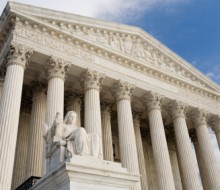Last Friday, the Department of Justice announced that California-based medical device manufacturer Acclarent Inc., a subsidiary of Johnson & Johnson, has agreed to pay $18 million to resolve allegations that the company caused health care providers to submit false claims to Medicare and other federal health care programs by marketing and distributing its sinus spacer product for use as a drug delivery device without U.S. Food and Drug Administration (FDA) approval of that use.
“The FDA approval process serves an important role in ensuring that federal health care participants receive devices that are safe, effective and medically appropriate,” said Principal Deputy Assistant Attorney General Benjamin C. Mizer, head of the Justice Department’s Civil Division. “We will not permit companies to circumvent that process and put profits over patient safety.”
“The FDA plays a fundamental role in ensuring the safety and efficacy of medical devices and drugs in this country,” said U.S. Attorney Carmen M. Ortiz. “Every time that patients receive a medical device or fill a prescription they should be able to take for granted that the FDA’s requirements have been met. We will vigorously pursue those who ignore or seek to circumvent these important patient protections.”
“It is imperative that medical device companies adhere to FDA approval requirements so that patients are not subject to questionable medical treatments at taxpayer expense,” said Special Agent in Charge Phillip M. Coyne of the Department of Health and Human Services Office of Inspector General. “Our investigators, working closely with our law enforcement partners, will continue to pursue allegations of such misconduct to hold fraudsters accountable and deter those tempted to launch such illegal scams.”
Acclarent sold a variety of medical devices used in sinus surgeries, including a device known as the Relieva Stratus MicroFlow Spacer (Stratus). In 2006, Acclarent received FDA clearance to market the Stratus as a spacer to be used only with saline to maintain sinus openings following surgery. The government alleged that Acclarent intended for the Stratus to be used instead as a drug-delivery device for prescription corticosteroids, including Kenalog-40, and that the device was specifically designed and engineered for this use.
The government further alleged that Acclarent marketed the Stratus as a drug delivery device even after the FDA rejected the company’s 2007 request to expand the approved uses for the Stratus. For example, Acclarent employees trained physicians using a video that demonstrated the Stratus being used with prescription corticosteroid Kenalog-40 and also used a white, milky substance resembling Kenalog-40 when demonstrating the Stratus.
In 2010, Acclarent added a warning to its label regarding use of active drug substances in the Stratus; however, the government alleged that Acclarent nonetheless continued to market the Stratus for drug delivery. By May 2013, Acclarent discontinued all sales of the Stratus and the company agreed to withdraw all FDA marketing clearances for the device, which is no longer commercially available in the United States.
On Wednesday, July 20th, Acclarent’s former Chief Executive Officer, William Facteau, 47, of Atherton, California and former Vice President of Sales, Patrick Fabian, 49, of Lake Elmo, Minnesota were convicted following a six-week jury trial of 10 misdemeanor counts of introducing adulterated and misbranded medical devices into interstate commerce.
The civil settlement with Acclarent resolves a lawsuit filed under the whistleblower provision of the False Claims Act, which permits private parties to file suit on behalf of the United States for false claims and share in a portion of the government’s recovery. The civil lawsuit was filed in the District of Massachusetts and is captioned United States ex rel. Melayna Lokosky v. Acclarent, Inc. As part of today’s resolution, Lokosky will receive approximately $3.5 million from the settlement.
This settlement illustrates the government’s emphasis on combating health care fraud and marks another achievement for the Health Care Fraud Prevention and Enforcement Action Team (HEAT) initiative, which was announced in May 2009 by the Attorney General and the Secretary of Health and Human Services. The partnership between the two departments has focused efforts to reduce and prevent Medicare and Medicaid financial fraud through enhanced cooperation. One of the most powerful tools in this effort is the False Claims Act. Since January 2009, the Justice Department has recovered a total of more than $30 billion through False Claims Act cases, with more than $18.3 billion of that amount recovered in cases involving fraud against federal health care programs.
The settlement with Acclarent was the result of a coordinated effort among the U.S. Attorney’s Office for the District of Massachusetts and the Civil Division’s Commercial Litigation Branch, with assistance from the FDA’s Office of Chief Counsel and HHS’ Office of Counsel to the Inspector General. The investigation was conducted by the FBI’s Boston Field Office, HHS-OIG, the Defense Health Agency, FDA’s Office of Criminal Investigations, the Department of Veterans Affairs Office of Inspector General and the U.S. Department of Defense, Office of Inspector General, Defense Criminal Investigative Service.
The claims resolved by this settlement are allegations only, and there has been no determination of liability.



